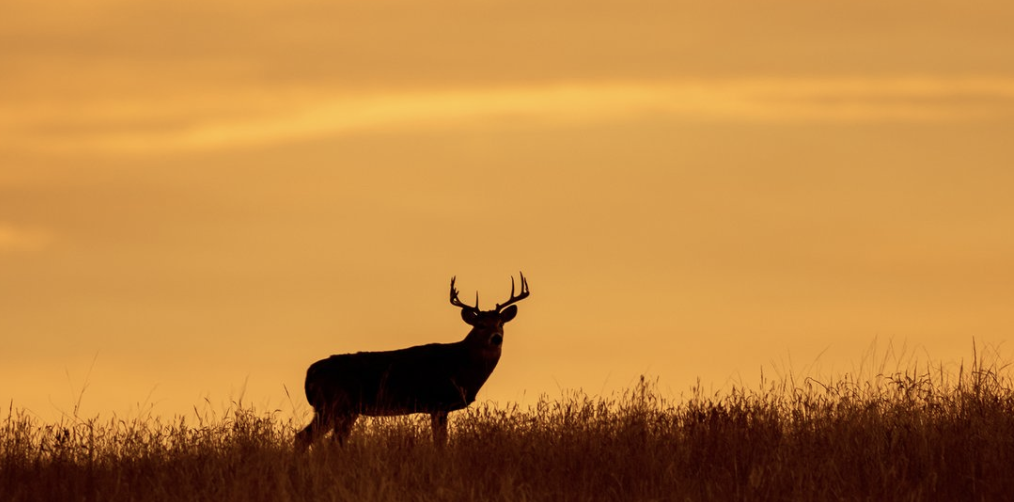
- Details
- By Chuck Hoskin Jr
Guest Opinion. When Cherokees were removed from our ancestral homelands, we carried with us a deep respect for natural resources and wildlife, both in our former lands and our new homes. From the Trail of Tears beans and other precious seeds that were sewn into Cherokee clothes for that arduous trek, to the knowledge of how to effectively manage game and fish populations, this deep-rooted respect was necessary for our survival and integral to our culture. Hunting and fishing are not just Cherokee pastimes; they are intrinsic to our way of life.
For centuries, Cherokee Nation and neighboring tribes have maintained a profound connection to the land and its resources. Now, the historic Five Tribe Wildlife Management Reciprocity Agreement, unveiled recently at the Inter-Tribal Council of the Five Civilized Tribes, marks a pivotal moment for the Cherokee Nation, Chickasaw Nation, Choctaw Nation of Oklahoma, Muscogee Nation, and soon for Seminole Nation as we mutually recognize one another’s hunting and fishing rights and licenses.
This groundbreaking effort gives greater access for tribal citizens while also strengthening tribal sovereignty and tribe-to-tribe collaboration. Under the agreement, citizens of any of the member tribes may hunt and fish across our reservations simply by using a tribal identification card or tribal license. Outdoorsmen engaging in these activities will be subject to the laws of the tribe on whose reservation they are hunting or fishing, and it is their responsibility to be aware of and comply with all regulations.
The cooperation also extends to our collaboration with state and federal partners. State game wardens, cross-deputized with participating tribes, will continue to enforce laws on reservation lands, ensuring that all activities are conducted in accordance with applicable laws.
The adoption of uniform wildlife codes demonstrates our commitment to success. Our codes, aligned with those of the state, include similar season dates and bag limits. The reciprocal agreement also underscores the importance of data-driven management. Each tribe will report basic harvest data annually, which enhances our ability to regulate effectively. All this enhances our ability to protect and manage wildlife effectively while benefiting all Oklahomans, not just tribal citizens.

A special commendation is due to Deputy Chief Bryan Warner for his visionary leadership in bringing this agreement together. Under his guidance, as well as the offices of the Attorney General and the Secretary of Natural Resources, Cherokee Nation has long excelled in conservation efforts. Nowhere is that more evident than the success of the tribe’s hunting preserve in Sequoyah County that was created through the Cherokee Nation Park, Wildlands, Fishing and Hunting Preserve Act. It is a model for effective wildlife management and preservation.
As the exclusive tribal authority over our Cherokee Nation Reservation, we have obligations and opportunities in fish and wildlife regulation and management that can benefit everyone if we work hard and are willing to collaborate with partners. As this historic agreement demonstrates, we are doing just that.
The Five Tribe Wildlife Management Reciprocity Agreement is a milestone in our journey toward greater sovereignty and cooperation. By working together, we honor our ancestors, sustain our cultural practices, and protect the land that has nurtured us for centuries. We must ensure that our natural resources remain abundant and accessible, supporting our way of life and the well-being of all who call eastern Oklahoma home.
Learn more by visiting our Cherokee Nation Wildlife Conservation website.
Chuck Hoskin, Jr. is principal chief of the Cherokee Nation.
More Stories Like This
Colorado cannot heal until it confronts Sand Creek honestlyNative American Mothers Deserve to Live
Technology Rooted in Tradition is Strengthening Cherokee Nation
The Lumbee Tribe of North Carolina: #575
Tribes Do Not Need a Greenlight to Build Renewable Energy
Help us defend tribal sovereignty.
At Native News Online, our mission is rooted in telling the stories that strengthen sovereignty and uplift Indigenous voices — not just at year’s end, but every single day.
Because of your generosity last year, we were able to keep our reporters on the ground in tribal communities, at national gatherings and in the halls of Congress — covering the issues that matter most to Indian Country: sovereignty, culture, education, health and economic opportunity.
That support sustained us through a tough year in 2025. Now, as we look to the year ahead, we need your help right now to ensure warrior journalism remains strong — reporting that defends tribal sovereignty, amplifies Native truth, and holds power accountable.
 The stakes couldn't be higher. Your support keeps Native voices heard, Native stories told and Native sovereignty defended.
The stakes couldn't be higher. Your support keeps Native voices heard, Native stories told and Native sovereignty defended.
Stand with Warrior Journalism today.
Levi Rickert (Potawatomi), Editor & Publisher

